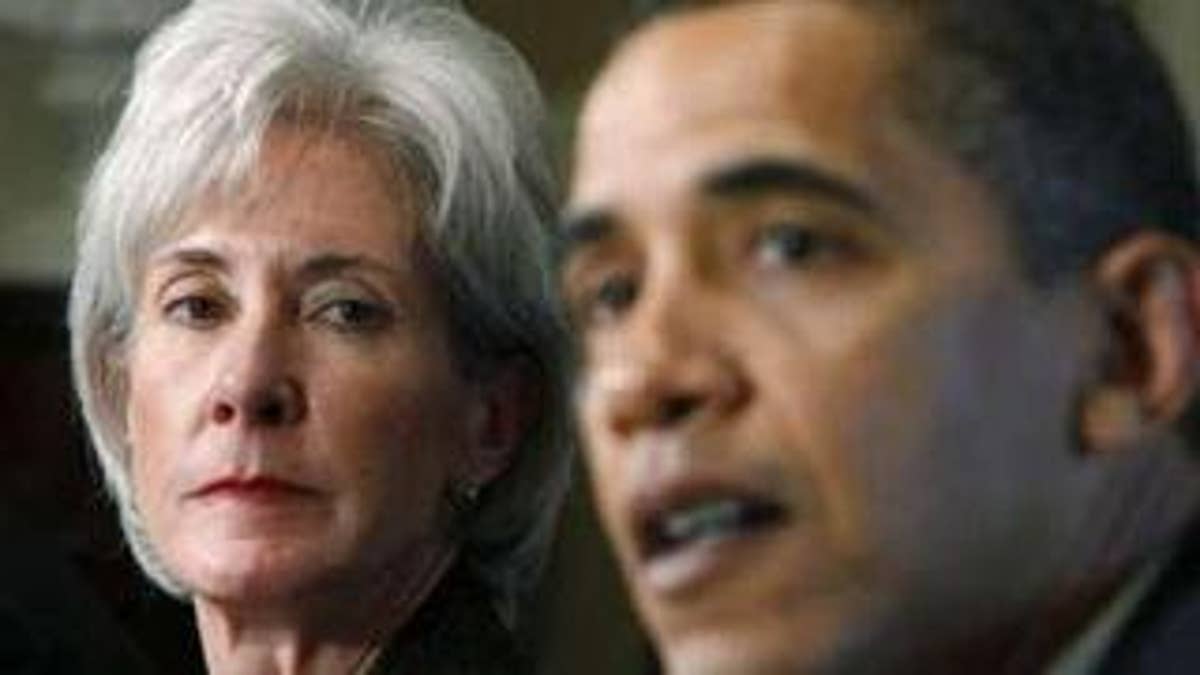
Momentum behind a new government-run health care plan appeared to slow considerably Sunday, as a lead Democratic negotiator called the option a "wasted effort" and President Obama's health secretary suggested the White House is ready to accept a health care reform package without it.
Sen. Kent Conrad, D-N.D., one of six negotiators trying to hammer out a bipartisan compromise measure on the Senate Finance Committee, told "FOX News Sunday" that the so-called public option simply does not have the votes to pass.
"The fact of the matter is there are not the votes in the United States Senate for the public option. There never have been," he said. "So to continue to chase that rabbit I think is just a wasted effort."
Conrad and other negotiators on the finance committee are instead pushing a system of nonprofit insurance cooperatives, as an alternative to the public plan.
"Co-ops are very prevalent in our society," Conrad said. "They've been a very successful business model."
Health and Human Services Secretary Kathleen Sebelius also told CNN's "State of the Union" Sunday that a public option is "not the essential element" in reform legislation.
The White House indicated it could jettison the contentious public option and settle on insurance cooperatives as an acceptable alternative.
"I think there will be a competitor to private insurers," Sebelius said. "That's really the essential part, is you don't turn over the whole new marketplace to private insurance companies and trust them to do the right thing. We need some choices, we need some competition."
The statement comes after Senate Majority Whip Dick Durbin, D-Ill., said last week that he's "open" to a bill with no public option.
The finance committee is the last of five committees to consider such legislation.
Conrad had previously cast doubt on the chances that a public option could ever pass the full Senate. But with opposition to Democrats' bill growing, other top officials are starting to leave wiggle room for legislation that does not include the option as Conrad and other negotiators push hard for a co-op system.
As proposed by Conrad, the co-ops would receive federal startup money, but then would operate independently of the government. They would have to maintain the same financial reserves that private companies are required to keep to handle unexpectedly high claims.
The idea has met a mixed reaction among Republicans.
On Sunday, Sen. Richard Shelby, R-Ala., said a co-op system would be a step in the right direction.
"We ought to look at it. I think it's a far cry from the original proposals," he told "FOX News Sunday."
White House Press Secretary Robert Gibbs told CBS' "Face the Nation" Sunday that the "bottom line" for the president is "choice and competition in the insurance market."
"The president has thus far sided with the notion that that can best be done through a public option," Gibbs said.
The Associated Press contributed to this report.




